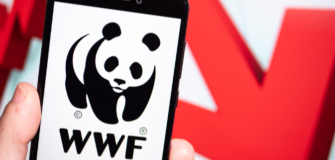Major not-for-profits have come together to call for stronger protections for volunteers, unpaid workers and women facing sexual harassment in the workplace.
There are no resources under Western Australia and Northern Territory law protecting volunteers from sexual harassment, which Justice Connect and Volunteering Australia attribute to a federal gap combined with gaps in jurisdictional legislation.
CEO of Volunteering Australia, Adrienne Picone, said: “Workplace sexual harassment is one of a range of rights-based issues and legal gaps that volunteers experience.”
In a submission to the Australian Human Rights Commission’s inquiry into harassment in the workplace, the two organisations have stated that all workers, including unpaid workers, should be given full legal protection from sexual harassment.
This comes as CEOs and executives from a range of organisations collaboratively set up ‘Not In My Workplace’, an initiative aimed at private, public and not-for-profit sectors to make a stand against the prevalence of sexual harassment.
CEO of Guide Dogs Victoria and member of the voluntary Committee, Karen Hayes, told Third Sector that it would create pathways for female employees to have a voice and to stand up against harassment in the workplace without fear of dismissal.
“We want to create these avenues and pathways for young women to have a voice and to be able to stand up and say ‘this is not appropriate’ and be not only comfortable doing that, but know their job or their future is not at risk,” Hayes said.
RELATED ARTICLES
According to data from the Fourth National Survey on Sexual Harassment in Australian Workplaces, conducted by the Australian Human Rights Commission, 39 per cent of women and 26 per cent of men have experienced harassment in the last five years.
Perpetrators of sexual harassment are overwhelmingly male, with one or more men involved in 79 per cent of cases in the last five years. Most people that experienced sexual harassment reported being harassed by one person, but in industries that are more male-dominated, the likelihood of multiple perpetrators was much higher.
Aboriginal and Torres Strait Islanders, people who identify as LGBTQI+ and those with disabilities are more likely to have experienced sexual harassment. It is most prevalent in information, media, arts and recreation, retail and mining sectors.
“It’s at a corporate, Board and individual level this issue on how we stamp out sexual harassment in the workplace and this is basically calling out everybody’s business,” said Hayes. “Everyone needs to get on board and be involved in the behaviour change that is necessary in all workplaces. This is the dialogue to affect necessary change.”
Picone said the inquiry for unpaid workers and volunteers will provide an opportunity to address the inequities in law and ensure all staff are protected.
“Volunteers are particularly vulnerable to workplace sexual harassment, without the impetus to have policies and procedures, and a formal avenue to channel complaints. Volunteers deserve to be treated with dignity and respect, and we hope that these reforms bring about a parity of esteem between paid employees and volunteers.”
The submission also calls for training, education and resources for volunteer rights as well as having government require all organisations to have policies and procedures in place to identify, prevent and respond to harassment of volunteers.
CEO of Justice Connect, Chris Povey, identified discrepancies that exist between paid and unpaid workers, with volunteers currently falling through the gaps, “particularly in NT and WA, where it is not unlawful to sexually harass a volunteer”.
“It’s time to fix this gap,” Povey said. “It’s time to give all workers – paid and unpaid – legislated protection from sexual harassment. But we can and should go further, we must enshrine in law the responsibilities of organisations to take action to protect their volunteers and other unpaid workers from sexual harassment in all its forms.”






























































































































































